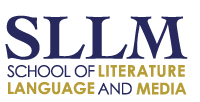足球竞彩app排名 us
Language and Literature Studies?has always been a key contributor to the University’s academic activities. Since the University began in 1922 the School has made many important contributions. Today the School is known as the?School of Literature Language and Media (SLLM).
The School benefits from a close relationship with the LINK Centre, an interdisciplinary academic hub headquartered at the University’s Tshimologong Digital Innovation Precinct. The Centre offers three postgraduate degree programmes: the Master of Arts in ICT Policy and Regulation (coursework and research report), the Master of Arts in Interdisciplinary Digital Knowledge Economy Studies (research only), and the PhD programme in Interdisciplinary Digital Knowledge Economy Studies (research only).




